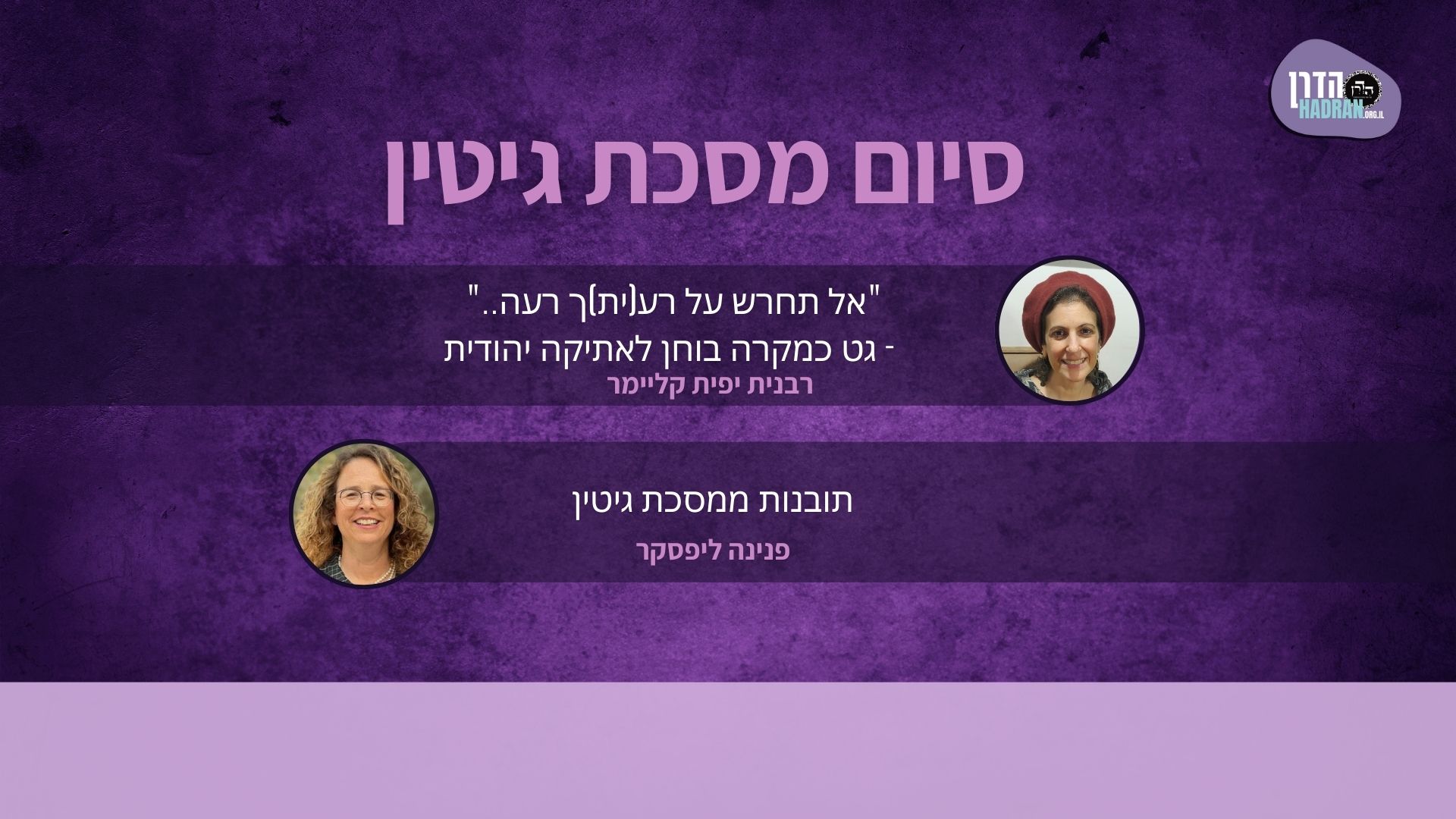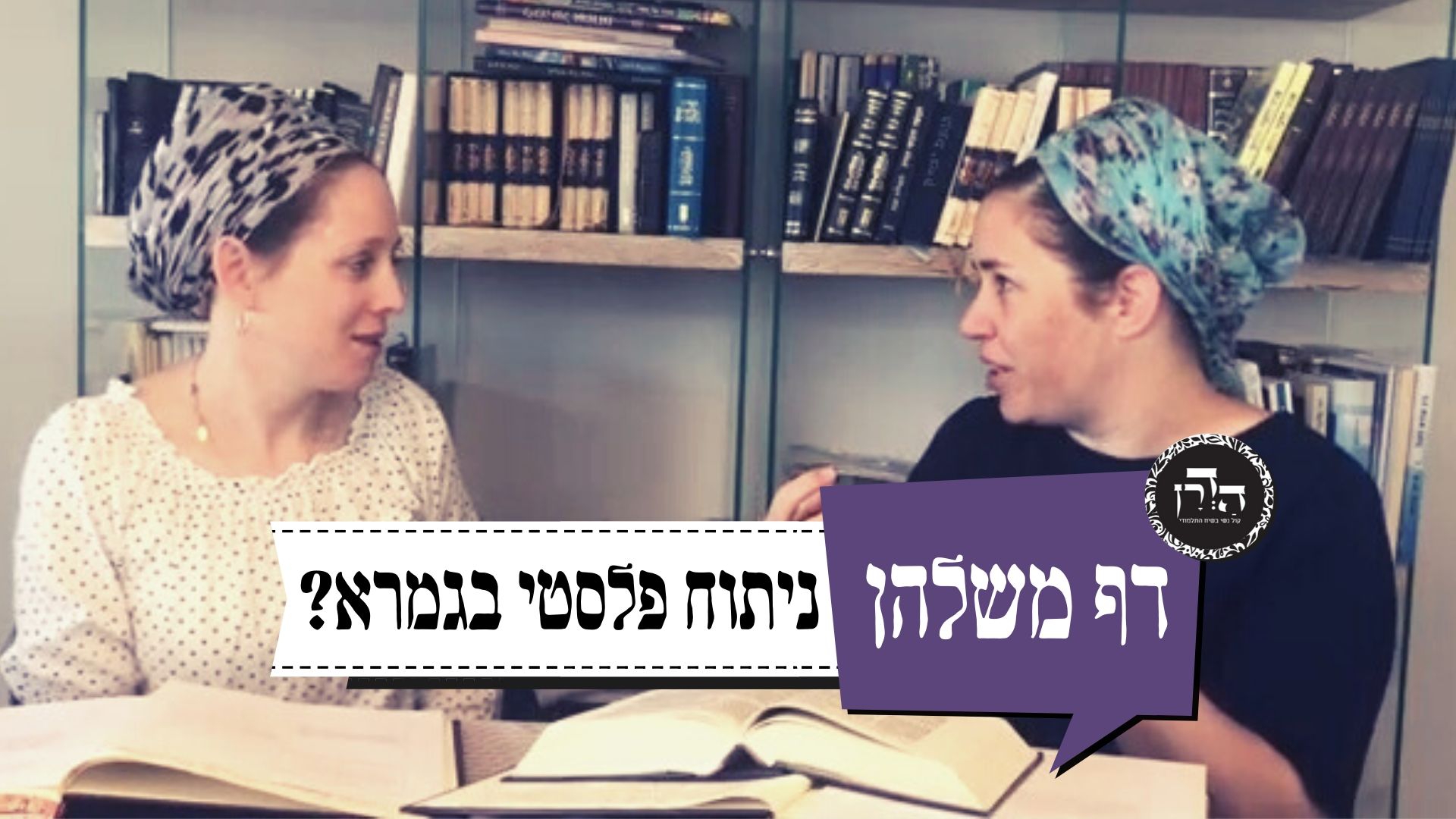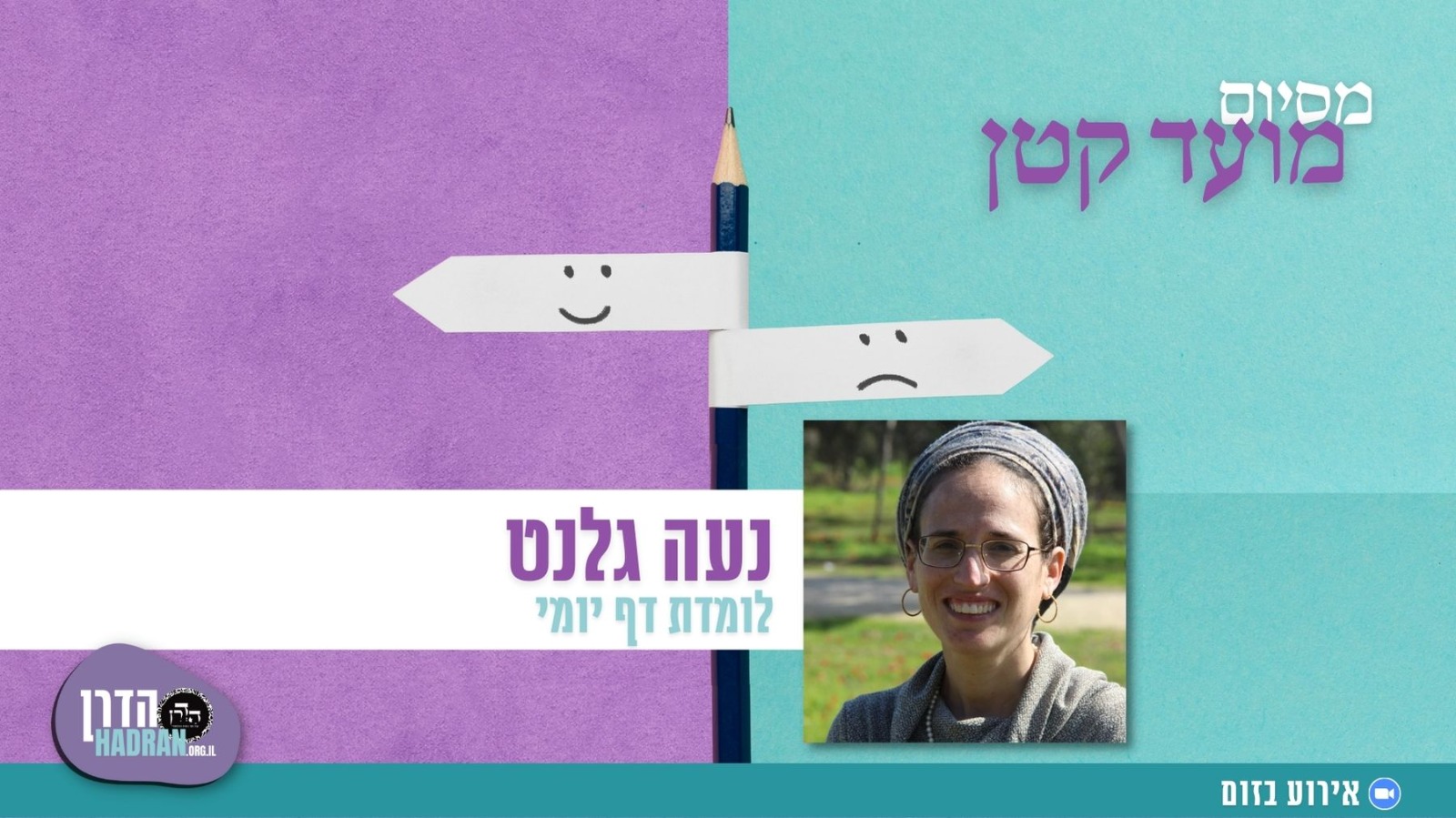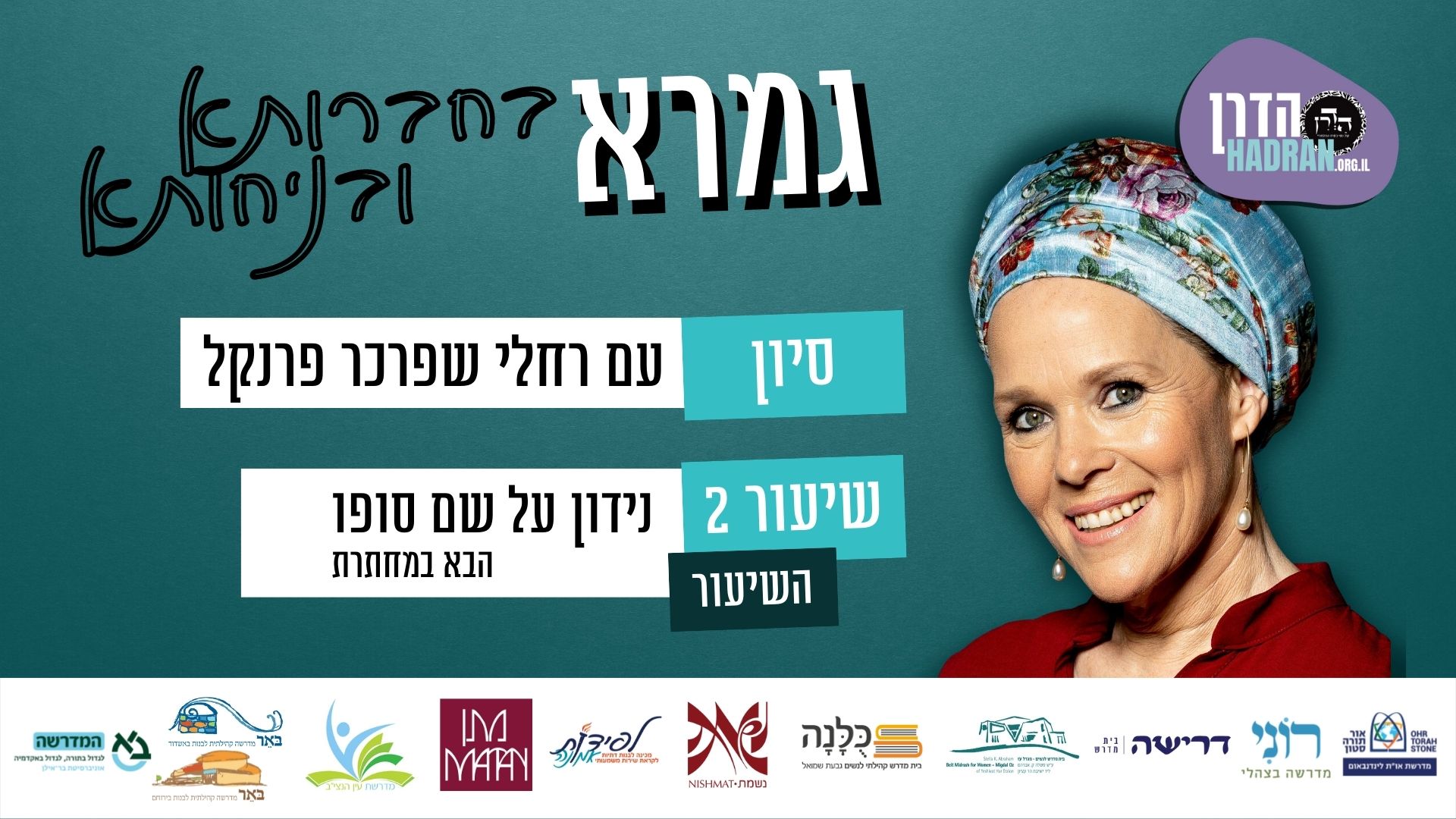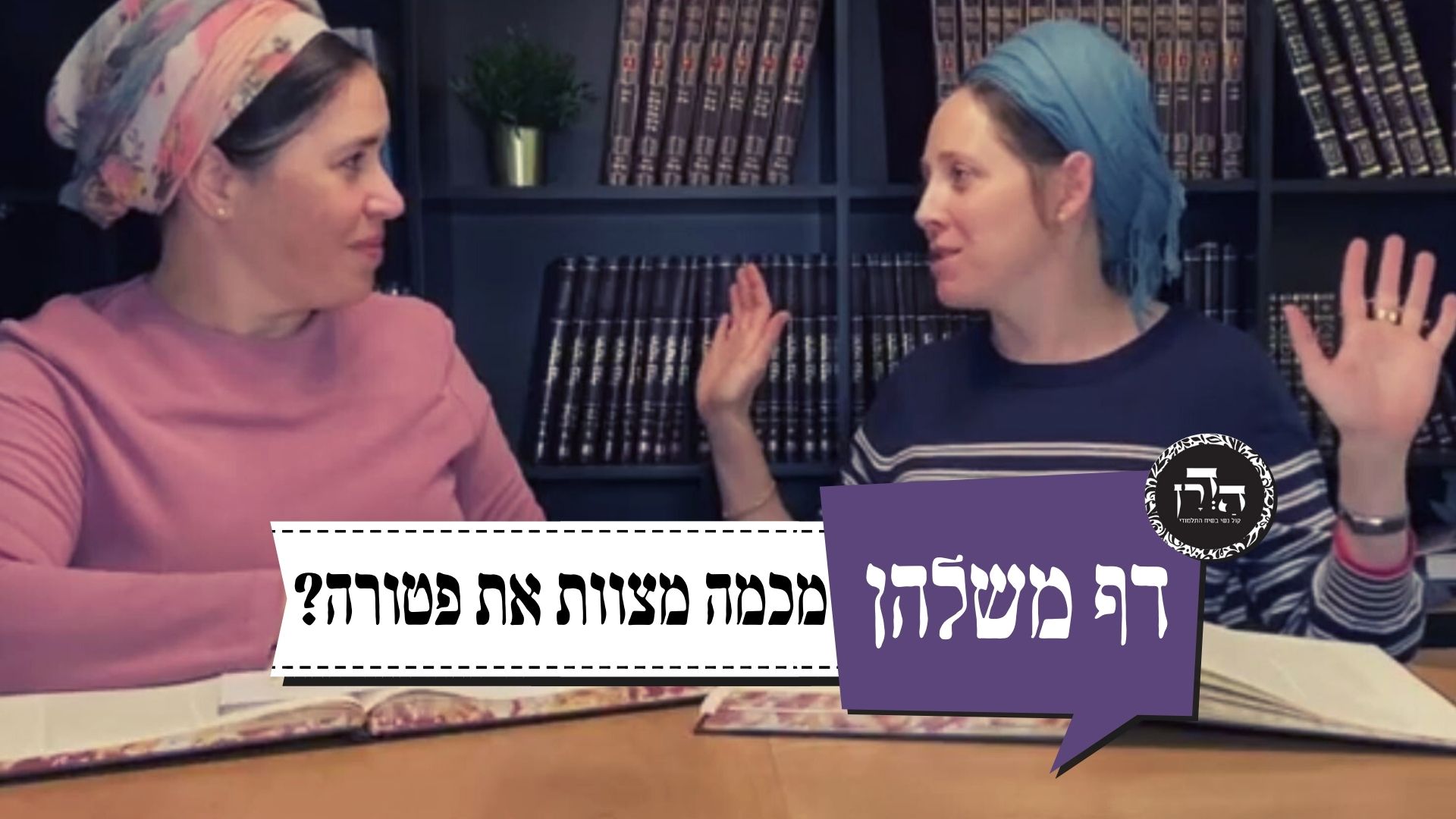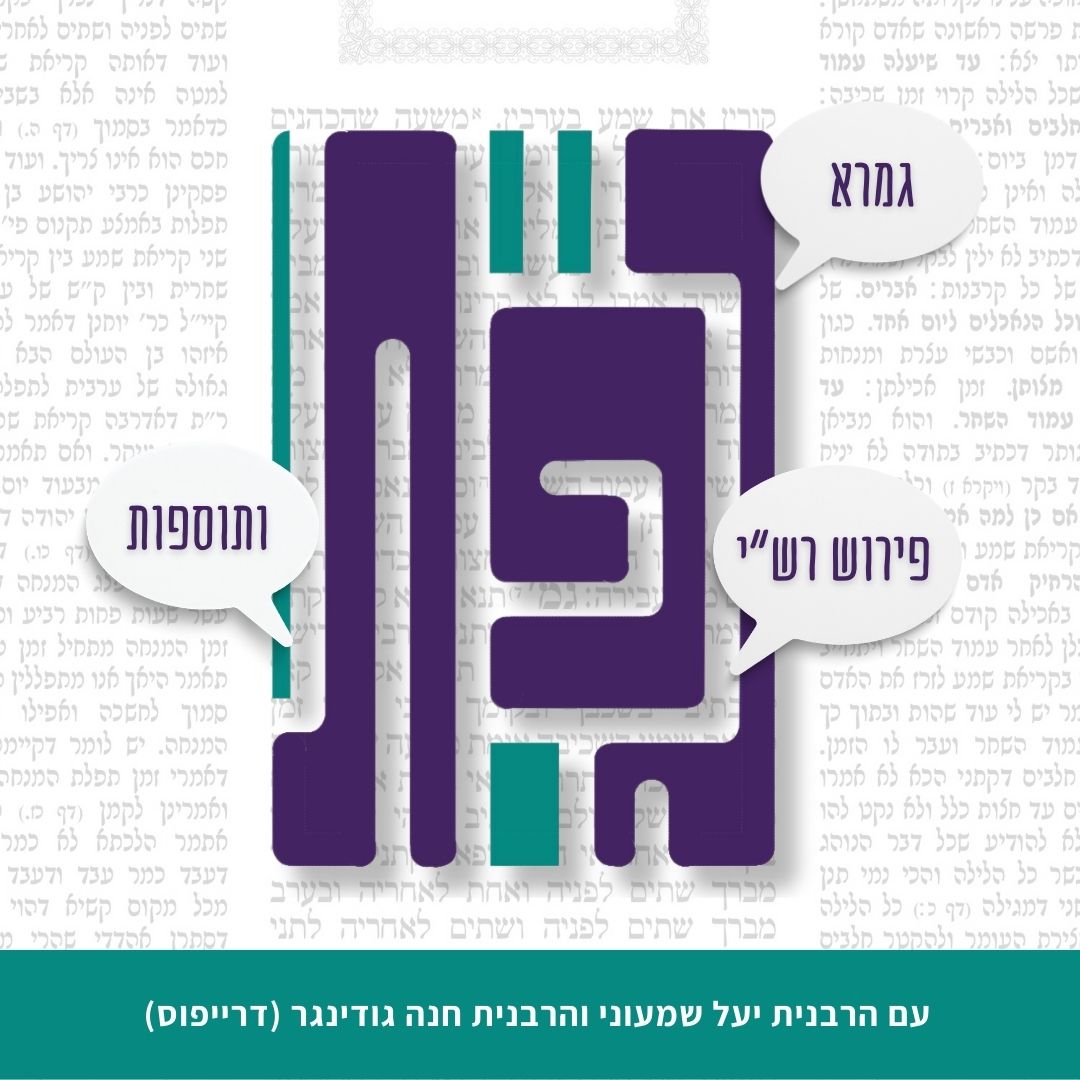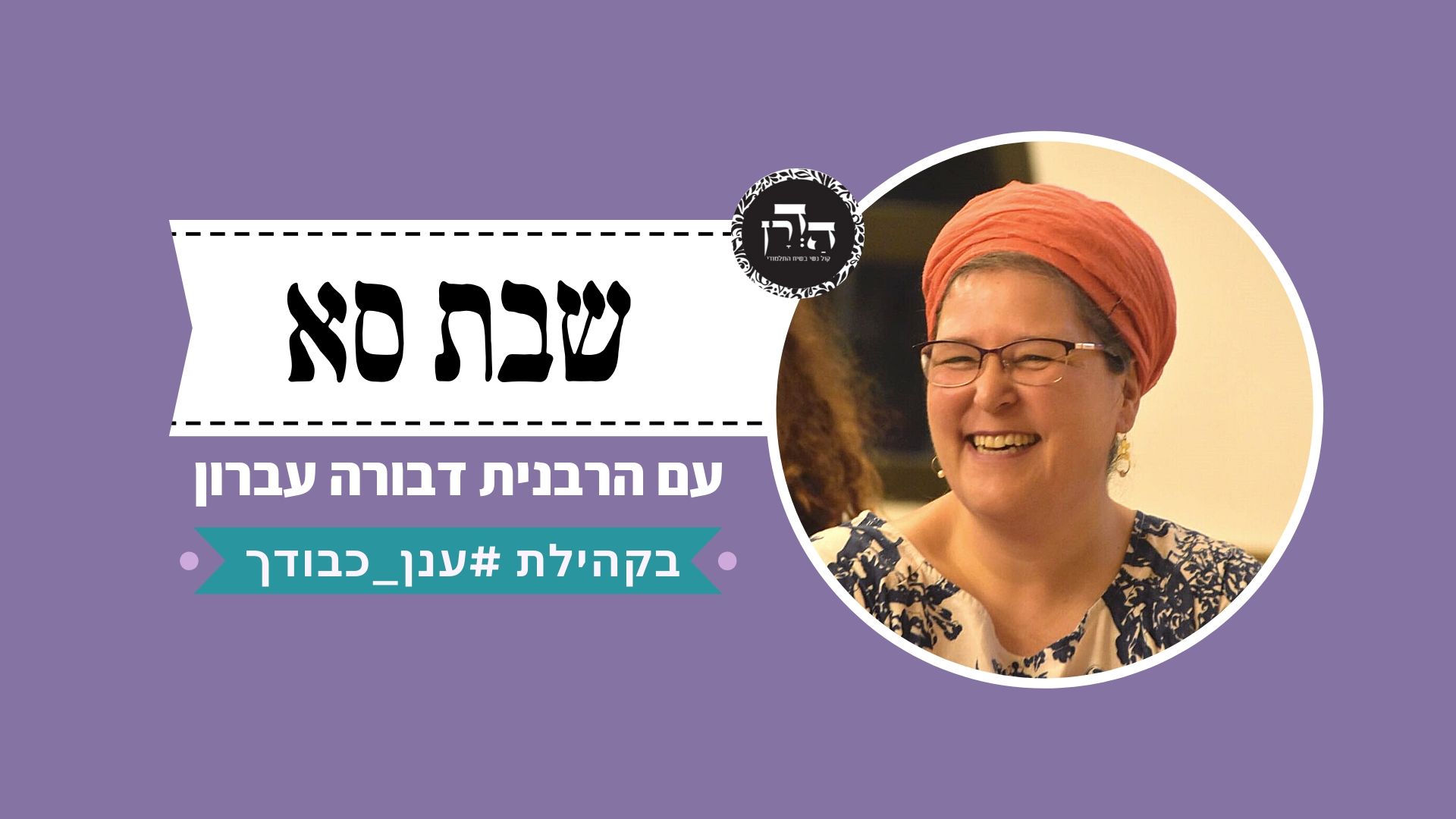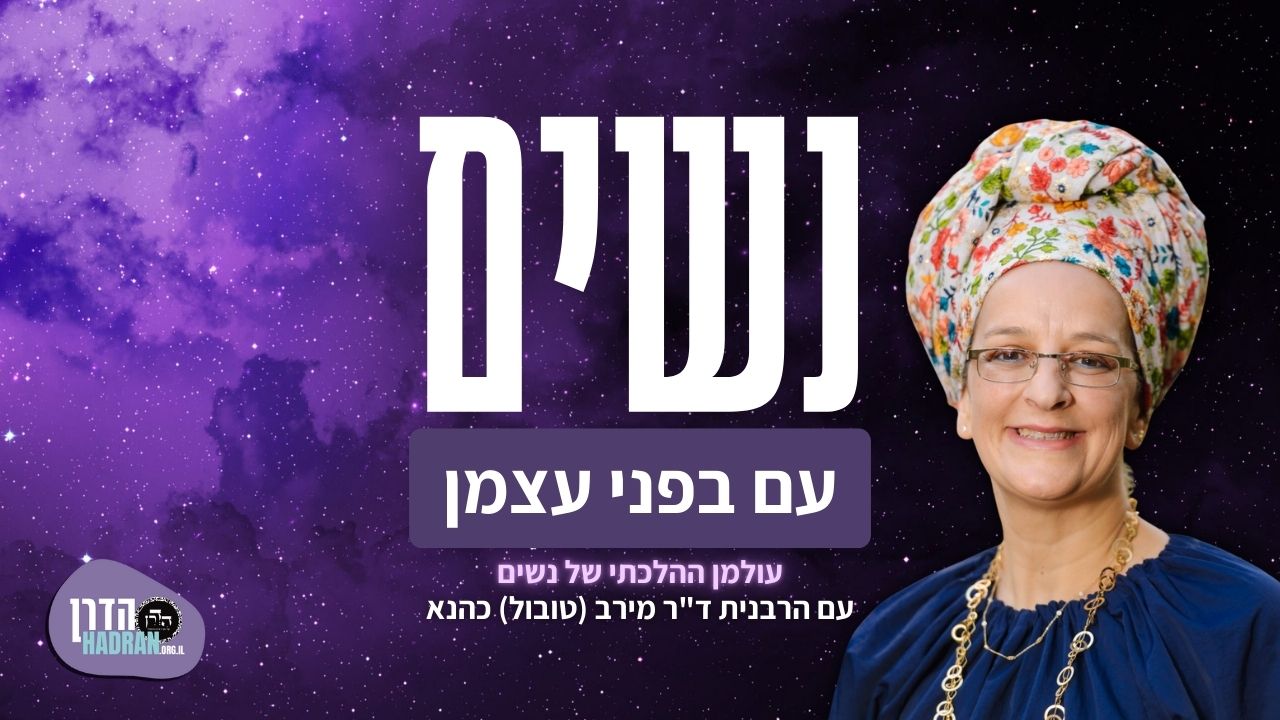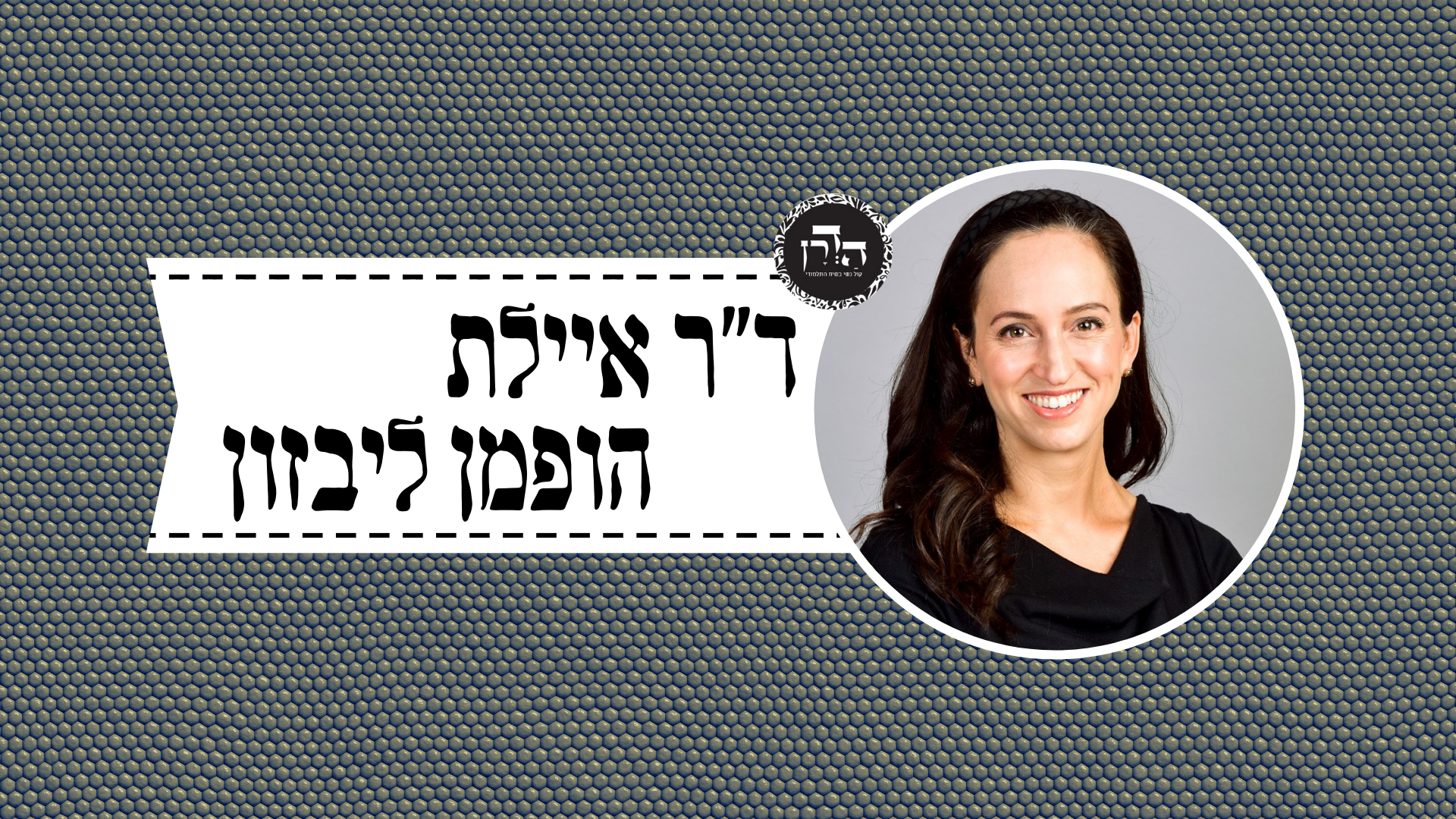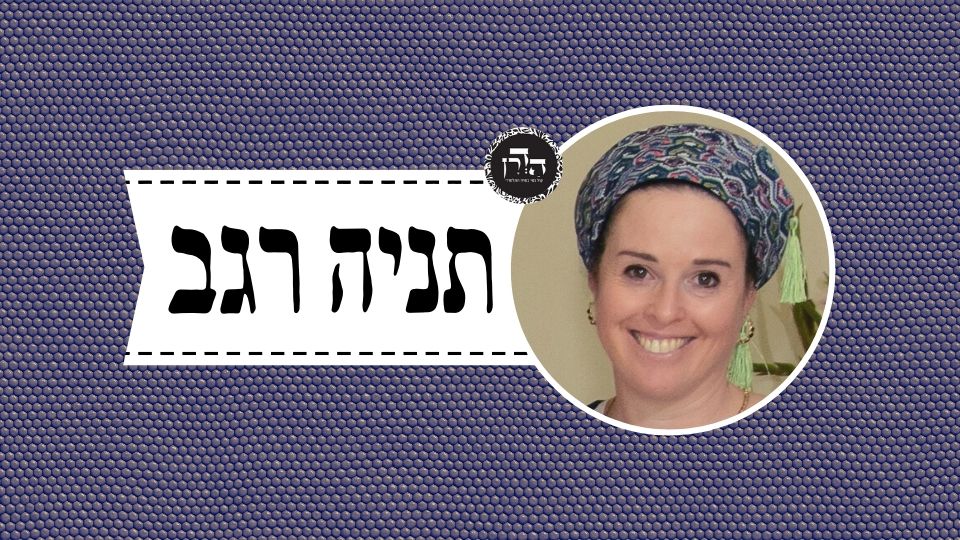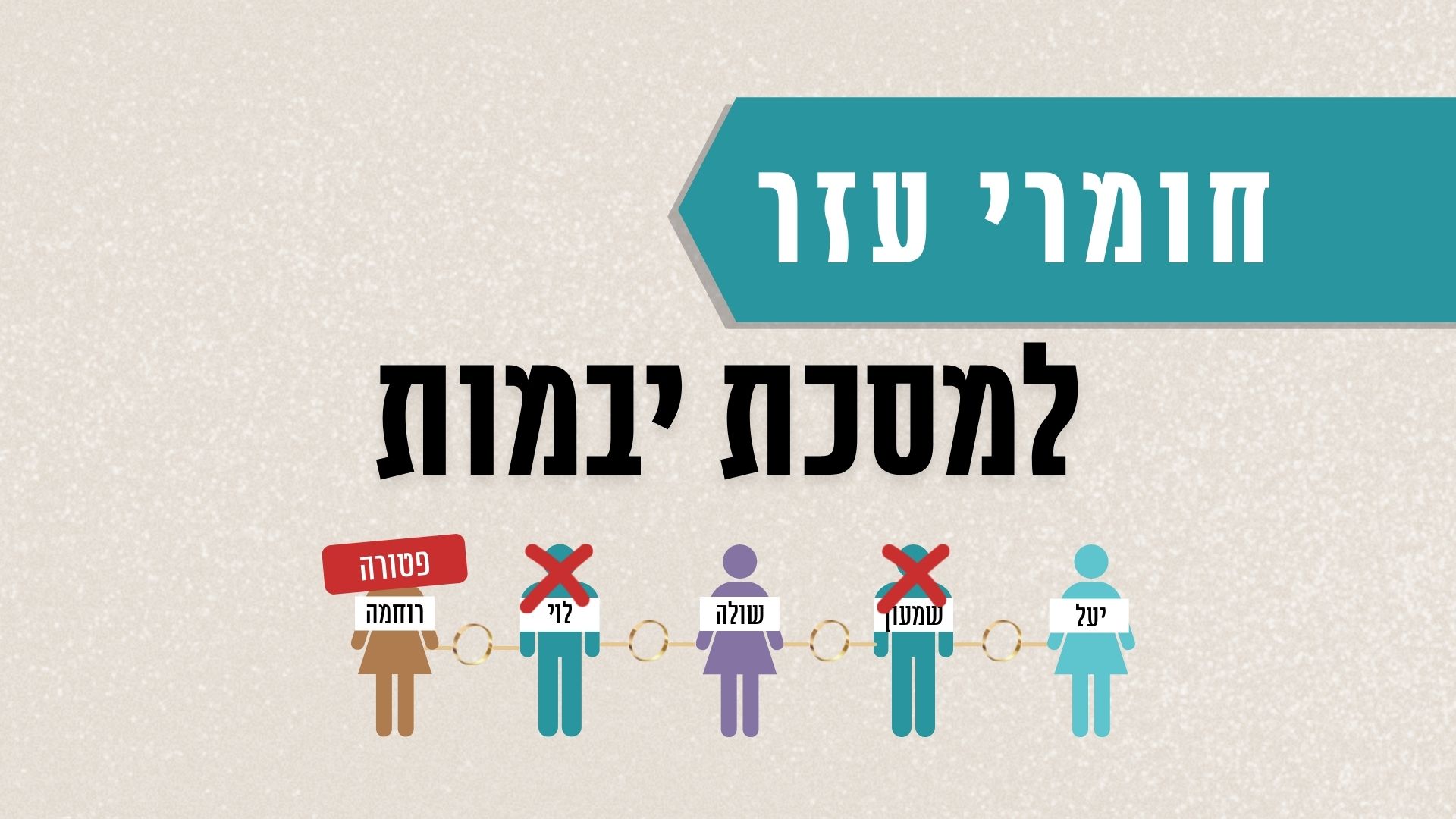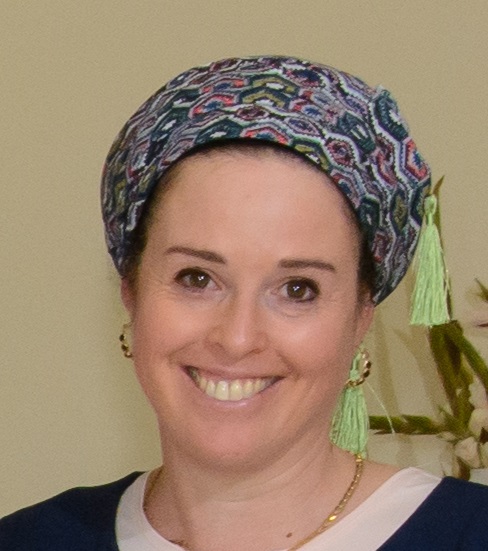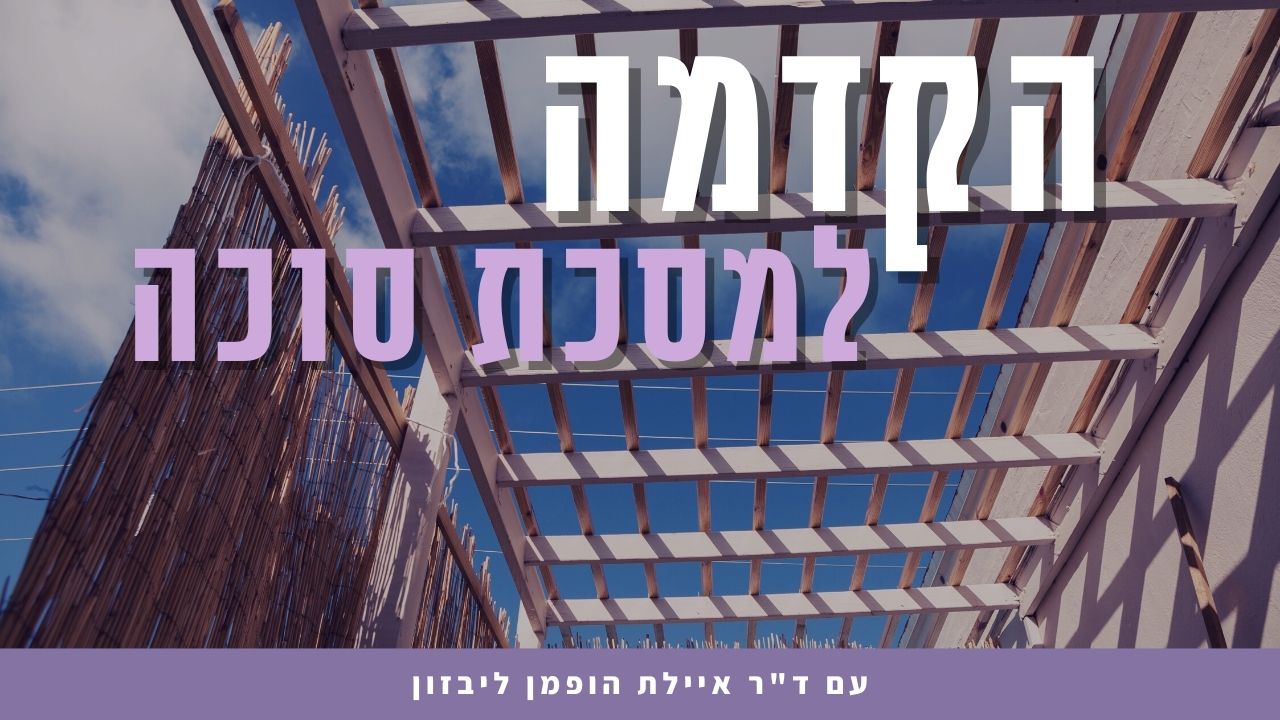למה גזרו על שחיטת הכותים ועל יינם? איך השתנתה ההתייחסות לכותים משך הדורות? האם צריך לחשוש לדמאי מתערובת של אוכל שעם הארץ הכין? אם נותנים את החומרים לעם הארץ להכין אוכל, האם צריך לחשוש שיחליפו את החומרים עם החומרים שלהם ויוצא חשש לדמאי? מה היתה תגובת חברים של רבי כשהוא התיר בית שאן לעניין תרומות ומעשרות? איך רבכי הגיב להם?
הלימוד השבוע מוקדש לזכות ולשלום הַיְימׇנוֹט אֱמוּנָה בַּת באנצ’י (קָסָאוּ) בת 11 שנעלמה במקום מגוריה בצפת, לפני שנתיים, ביום ט”ז אדר תשפ”ד (25.2.24), ולא נודעו עקבותיה.
הלימוד השבוע מוקדש למען ביטחון המדינה, החיילים והאזרחים, ולמען חירותו של העם האיראני. שנזכה בקרוב שיתקיים בנו הפסוק: "לַיְּהוּדִים הָיְתָה אוֹרָה וְשִׂמְחָה וְשָׂשֹׂן וִיקָר”.
הלימוד השבוע מוקדש לזכות וְלִשְׁלוֹם הָיימָנוֹט אֱמוּנָה בַּת באנצ’י (קָסָאוּ), בת 11 שנעלמה במקום מגוריה בצפת, לפני שנתיים, ביום ט”ז אדר תשפ״ד (25.2.24), ולא נודעו עקבותיה. אנו מתפללים שֶׁתִּמָּצֵא וְתוּשַׁב לביתה במהרה!
רוצה להקדיש שיעור?

כלים
הלימוד השבוע מוקדש לזכות ולשלום הַיְימׇנוֹט אֱמוּנָה בַּת באנצ’י (קָסָאוּ) בת 11 שנעלמה במקום מגוריה בצפת, לפני שנתיים, ביום ט”ז אדר תשפ”ד (25.2.24), ולא נודעו עקבותיה.
הלימוד השבוע מוקדש למען ביטחון המדינה, החיילים והאזרחים, ולמען חירותו של העם האיראני. שנזכה בקרוב שיתקיים בנו הפסוק: "לַיְּהוּדִים הָיְתָה אוֹרָה וְשִׂמְחָה וְשָׂשֹׂן וִיקָר”.
הלימוד השבוע מוקדש לזכות וְלִשְׁלוֹם הָיימָנוֹט אֱמוּנָה בַּת באנצ’י (קָסָאוּ), בת 11 שנעלמה במקום מגוריה בצפת, לפני שנתיים, ביום ט”ז אדר תשפ״ד (25.2.24), ולא נודעו עקבותיה. אנו מתפללים שֶׁתִּמָּצֵא וְתוּשַׁב לביתה במהרה!
כלים
העמקה
רוצה להבין מה באמת קורה מתחת לפני השטח של הסוגיה?
שיעורים, פודקאסטים והרחבות של מיטב המורות שלנו יפתחו לך עוד זוויות וכיווני חשיבה.
חדשה בלימוד הגמרא?
זה הדף הראשון שלך? איזו התרגשות עצומה! יש לנו בדיוק את התכנים והכלים שיעזרו לך לעשות את הצעדים הראשונים ללמידה בקצב וברמה שלך, כך תוכלי להרגיש בנוח גם בתוך הסוגיות המורכבות ומאתגרות.
פסיפס הלומדות שלנו
גלי את קהילת הלומדות שלנו, מגוון נשים, רקעים וסיפורים. כולן חלק מתנועה ומסע מרגש ועוצמתי.
חולין ו
ואי סלקא דעתיך לא קבלה מיניה לישני ליה כאן כשישראל עומד על גביו כאן כשאין ישראל עומד על גביו אלא לאו ש”מ קבלה מיניה ש”מ
And if it enters your mind that Rabbi Zeira did not accept from Rabbi Ya’akov bar Idi that Rabban Gamliel prohibited eating from the slaughter of a Samaritan even when a Jew was standing over him, let Rabbi Zeira resolve the matter for himself in a different manner: Here, where Rabbi Yoḥanan ate from the slaughter of a Samaritan, it was when a Jew was standing over him; there, where Rabban Gamliel prohibited eating from the slaughter of a Samaritan, it was when a Jew was not standing over him. Rather, must one not conclude from it that Rabbi Zeira accepted the response from Rabbi Ya’akov bar Idi. The Gemara affirms: Indeed, learn this from it.
ומ”ט גזרו בהו רבנן כי הא דר”ש בן אלעזר שדריה ר”מ לאתויי חמרא מבי כותאי אשכחיה ההוא סבא א”ל (משלי כג, ב) ושמת סכין בלועך אם בעל נפש אתה הלך ר”ש בן אלעזר וספר דברים לפני ר”מ וגזר עליהן
§ The Gemara asks: And what is the reason that the Sages, Rabban Gamliel and his court, issued a decree rendering it prohibited to eat from the slaughter of Samaritans? The Gemara answers: It is like that case involving Rabbi Shimon ben Elazar, in which Rabbi Meir dispatched him to bring wine from the area of the Samaritans. A certain elder found him and said to him: “And put a knife to your throat, if you are a man given to appetite” (Proverbs 23:2),as a warning to distance himself from them and not to drink their wine, because they were not reliable. Rabbi Shimon ben Elazar went and related those matters before Rabbi Meir, and Rabbi Meir issued a decree against them.
מאי טעמא אמר רב נחמן בר יצחק דמות יונה מצאו להן בראש הר גריזים שהיו עובדין אותה ור”מ לטעמיה דחייש למיעוטא וגזר רובא אטו מיעוטא ורבן גמליאל ובית דינו נמי כר”מ סבירא להו
What is the reason that the Samaritans are deemed unreliable? Rav Naḥman bar Yitzḥak said: At the peak of Mount Gerizim they found the image of a dove, which the Samaritan residents of Mount Gerizim would worship; and Rabbi Meir issued the decree according to his line of reasoning that he takes the minority into consideration, and therefore, despite the fact that the majority of Samaritans did not live on Mount Gerizim, he issued a decree rendering meat slaughtered by the majority forbidden due to the minority that worshipped that idol. And Rabban Gamliel and his court also hold in accordance with the opinion of Rabbi Meir.
פשטיה דקרא במאי כתיב בתלמיד היושב לפני רבו דתני רבי חייא (משלי כג, א) כי תשב ללחום את מושל בין תבין את אשר לפניך ושמת סכין בלועך אם בעל נפש אתה
The Gemara asks: As to the plain meaning of that verse: “And put a knife to your throat, if you are a man given to appetite,” with regard to what matter is it written? The Gemara answers: It is written with regard to a student who is sitting before his teacher, as he must consider his words carefully. As Rabbi Ḥiyya teaches a baraita interpreting the verses: “When you sit to eat with a ruler, consider well [bin tavin] him that is before you; and put a knife to your throat, if you are a man given to appetite” (Proverbs 23:1–2).
אם יודע תלמיד ברבו שיודע להחזיר לו טעם בין ואם לאו תבין את אשר לפניך ושמת סכין בלועך אם בעל נפש אתה פרוש הימנו
The tanna explains the verse: If a student knows about his teacher that he knows to respond to him with a reasoned answer, seek wisdom [bin] from him. And if the student believes that the teacher is not capable of doing so, understand [tavin] who is sitting before you, and put a knife to your throat and refrain from embarrassing him with questions that he cannot answer. And if you are a man given to appetite and you seek an answer to your question, distance yourself from him.
רבי יצחק בן יוסף שדריה רבי אבהו לאתויי חמרא מבי כותאי אשכחיה ההוא סבא א”ל לית כאן שומרי תורה הלך רבי יצחק וספר דברים לפני רבי אבהו והלך רבי אבהו וספר דברים לפני רבי אמי ורבי אסי ולא זזו משם עד שעשאום עובדי כוכבים גמורין
Rabbi Abbahu dispatched Rabbi Yitzḥak ben Yosef to bring wine from the area of the Samaritans. A certain elder found him and said to him: The people here are not keepers of the Torah. Rabbi Yitzḥak went and related the matters before Rabbi Abbahu, and Rabbi Abbahu went and related the matters before Rabbi Ami and Rabbi Asi, and they did not move from there until they rendered the Samaritans full-fledged gentiles.
למאי אי לשחיטה ויין נסך מהתם גזרו בהו רבנן אינהו גזור ולא קבלו מינייהו אתו רבי אמי ורבי אסי גזרו וקבלו מינייהו
The Gemara asks: For what matters did those Sages render them full-fledged gentiles? If it was to prohibit eating from their slaughter and to render their wine as wine used for a libation in idol worship, these prohibitions were issued previously. From there, from the generations of Rabbi Meir and Rabban Gamliel, the Sages issued a decree prohibiting them. The Gemara answers: They issued a decree, and the people did not accept it from them. Rabbi Ami and Rabbi Asi came and issued a decree, and the people accepted it from them.
מאי עובדי כוכבים גמורין אמר ר”נ בר יצחק לבטל רשות וליתן רשות
The Gemara asks: What is the meaning of full-fledged gentiles? Rav Naḥman bar Yitzḥak said: It means that the halakhic status of a Samaritan is like that of a gentile with regard to renouncing his domain in a jointly-owned courtyard on Shabbat and to transferring his domain in the courtyard to residents of that courtyard.
וכדתניא ישראל מומר משמר שבתו בשוק מבטל רשות ונותן רשות ושאינו משמר שבתו בשוק אינו מבטל רשות ונותן רשות
And this is as it is taught in a baraita: With regard to a Jewish transgressor who nevertheless observes his Shabbat in the marketplace, i.e., in public, if he failed to establish a joining of houses in a courtyard before Shabbat, his halakhic status is that of an observant Jew, and he may renounce his domain in the courtyard and transfer his domain in the courtyard. But a transgressor who does not observe his Shabbat in the marketplace may neither renounce his domain in the courtyard nor transfer his domain in the courtyard.
מפני שאמרו ישראל נותן רשות ומבטל רשות ובעובד כוכבים עד שישכור
This is because the Sages said: Only a Jew may verbally transfer rights in his domain or renounce his rights in his domain, but with regard to a gentile, the other residents cannot establish a joining of courtyards unless the residents of the courtyard lease his domain from him. The halakhic status of one who publicly desecrates Shabbat is that of a gentile.
כיצד אמר לו רשותי קנויה לך רשותי מבוטלת לך קנה ואינו צריך לזכות
How does a Jew transfer or renounce his domain? If a Jew says to his neighbor: My domain is transferred to you or my domain is renounced to you, his neighbor has acquired his domain, and it is not necessary for him to grant it to his neighbor by means of one of the standard modes of acquisition.
רבי זירא ורב אסי איקלעו לפונדקא דיאי אייתו לקמייהו ביצים המצומקות ביין רבי זירא לא אכל ורב אסי אכל א”ל רבי זירא לרב אסי ולא חייש מר לתערובת דמאי א”ל לאו אדעתאי
§ The Gemara revisits the statement that the righteous would not experience mishaps. Rabbi Zeira and Rav Asi happened to come to the inn of the town of Ya’ei. In the inn, they brought before these Sages eggs that shriveled after being cooked in wine. Rabbi Zeira did not eat the eggs, and Rav Asi ate them. Rabbi Zeira said to Rav Asi: And is the Master not concerned about the possibility that the dish is a mixture containing wine that is doubtfully tithed produce [demai]? Rav Asi said to him: It did not enter my mind.
א”ר זירא אפשר גזרו על התערובת דמאי ומסתייעא מילתא דרב אסי למיכל איסורא השתא בהמתן של צדיקים אין הקב”ה מביא תקלה על ידן צדיקים עצמן לא כל שכן
Rabbi Zeira said to himself: Is it possible that the Sages issued a decree on a mixture containing demai and the matter eventuated that Rav Asi ate forbidden food? Now, since even with regard to the animals of the righteous, the Holy One, Blessed be He, does not generate mishaps through them, is it not all the more so true that the righteous themselves would not experience mishaps?
נפק רבי זירא דק ואשכח דתנן הלוקח יין לתת לתוך המורייס או לתוך האלונתית כרשינין לעשות מהן טחינין עדשים לעשות מהן רסיסין חייב משום דמאי ואין צריך לומר משום ודאי
Rabbi Zeira emerged, analyzed, and found that no mishap was generated through Rav Asi, as we learned in a baraita (Tosefta, Demai 1:24): In the case of one who purchases wine to place into fish gravy [hamorayes] or into aluntit, a beverage in which wine is mixed, or one who purchases vetch to prepare grist from it, or lentils to prepare groats from it, if it is uncertain whether what he purchased is tithed, e.g., he bought it from one who is unreliable with regard to tithes [am ha’aretz], one is obligated to tithe it, due to the fact that it is demai. And needless to say, if it is certain that what he purchased is not tithed, he is obligated to tithe it due to the fact that it is certain that it is untithed produce.
והן עצמן מותרין מפני שהן תערובת
And they themselves, the gravy, aluntit, grist, and groats that one purchased from an am ha’aretz, are permitted, because they are a mixture. Since only one element of the mixture must be tithed, the food is permitted.
ולא גזרו על תערובת דמאי והתניא הנותן לשכנתו עיסה לאפות וקדירה לבשל אינו חושש לשאור ותבלין שבה לא משום שביעית ולא משום מעשר
The Gemara asks: And is it so that the Sages did not issue a decree on a mixture containing demai? But isn’t it taught in a baraita: With regard to one who gives his neighbor, who is an am ha’aretz, dough to bake and gives her leaven for the dough to rise, or gives her a pot of food and the spices to cook in it, he need not be concerned about the leaven and the spices that are in the dough and the pot respectively, that perhaps she replaced them with her own, neither with regard to the possibility that they are Sabbatical Year produce nor with regard to the possibility that tithe was not separated.
ואם אמר לה עשי לי משליכי חושש לשאור ותבלין שבה משום שביעית ומשום מעשר
And if he says to her: Prepare the dough or the food for me with your own leaven and spices, he must be concerned about the leaven and the spices that are in the dough and the pot respectively, with regard to the possibility that they are Sabbatical Year produce and with regard to the possibility that tithe was not separated, even though it is a mixture containing demai.
שאני התם דכיון דקאמר לה עשי לי משליכי כמאן דעריב בידים דמי רפרם אמר שאני שאור ותבלין דלטעמא עביד וטעמא לא בטיל
The Gemara answers: It is different there, as, since he said to her: Prepare the dough or the food for me from your own, it is like one who mixed it by direct action. Rafram said: Leaven and spices are different, as each of them is made for the purpose of adding taste to the mixture, and taste is not nullified in a mixture.
ולחלופי לא חיישינן והתנן הנותן לחמותו מעשר את שהוא נותן לה ואת שהוא נוטל ממנה מפני שחשודה מחלפת המתקלקל התם כדתניא טעמא א”ר יהודה רוצה היא בתקנת בתה ובושה מחתנה
The Gemara asks: And are we not concerned about replacement of the ingredients that he gave his neighbor with her own? But didn’t we learn in a mishna (Demai 3:6): One who gives dough to his mother-in-law, who is suspect with regard to tithing, so that she will prepare it for him, must tithe everything that he gives her and everything that he takes back from her. This is because she is suspected of replacing an ingredient that spoils. The Gemara answers: There, the reason is like it is taught explicitly in that mishna, that Rabbi Yehuda said: The mother-in-law desires her daughter’s well-being and wants to ensure that she eats quality food, and is reticent to tell her son-in-law that she replaced the ingredients that spoiled.
ולעלמא לא חיישינן והתנן הנותן לפונדקית שלו מעשר את שהוא נותן לה ואת שהוא נוטל הימנה מפני שחשודה מחלפת התם נמי מוריא ואמרה בר בי רב ליכול חמימא ואנא איכול קרירא
The Gemara asks: And in general, in a case not involving one’s mother-in-law, are we not concerned about the possibility of replacement? But didn’t we learn in a mishna (Demai 3:5): One who gives dough or a pot of food to his innkeeper [pundakit] who is an am ha’aretz to bake or cook, tithes what he gives her and tithes what he takes back from her, due to the fact that she is suspected of replacing the ingredients? The Gemara answers: There too, her intentions are good, as the innkeeper rationalizes her deception and says: Let the student of Torah eat my hot food and I will eat his cold food.
ולחלופי לא חיישינן והתניא אשת חבר טוחנת עם אשת עם הארץ בזמן שהיא טמאה אבל לא בזמן שהיא טהורה
The Gemara asks: And are we not concerned about replacement of the ingredients? But isn’t it taught in a baraita: The wife of a ḥaver, one devoted to the meticulous observance of mitzvot, especially the halakhot of ritual purity, teruma, and tithes,grinds grain with the wife of an am ha’aretz when the wife of the ḥaver is ritually impure with the impurity of a menstruating woman. In that case, there is no concern that she will eat her counterpart’s untithed produce, as, since she is impure she will refrain from touching the grain so that she will not render it impure. But she may not do so when she is ritually pure, due to the concern that she will eat the untithed produce.
רבי שמעון בן אלעזר אומר אף בזמן שהיא טמאה לא תטחון מפני שחבירתה נותנת לה ואוכלת
Rabbi Shimon ben Elazar says: Even when she is impure, the wife of the ḥaver may not grind grain together with the wife of the am ha’aretz, due to the fact that her counterpart gives her grain and she eats it without touching the rest of the grain.
השתא מיגזל גזלה חלופי מיבעיא אמר רב יוסף התם נמי מוריא ואמרה תורא מדישיה קאכיל
The Gemara infers: Now that there is suspicion that the wife of the am ha’aretz steals from her husband’s grain and gives it to her counterparts, is it necessary to say that she is suspect with regard to replacing ingredients? Rav Yosef said: There too there are special circumstances, as the wife of the am ha’aretz rationalizes her behavior and says metaphorically: The ox eats from its threshing, and believes that the wife of the ḥaver is entitled to some of the grain that she is grinding.
העיד רבי יהושע בן זרוז בן חמיו של רבי מאיר לפני רבי על ר”מ שאכל עלה של ירק בבית שאן והתיר רבי את בית שאן כולה על ידו
§ The Gemara resumes its discussion of the statement that the righteous would not experience mishaps. Rabbi Yehoshua ben Zeruz, son of the father-in-law of Rabbi Meir, testified before Rabbi Yehuda HaNasi about Rabbi Meir that he ate the leaf of a vegetable in Beit She’an without tithing or separating teruma, as he holds that Beit She’an is not part of Eretz Yisrael and therefore is not sacred with its sanctity. And Rabbi Yehuda HaNasi permitted all the produce of Beit She’an on the basis of his testimony.
חברו עליו אחיו ובית אביו אמרו לו מקום שאבותיך ואבות אבותיך נהגו בו איסור אתה תנהוג בו היתר
His brothers and his father’s household united against him and said to him: In a place where your fathers and the fathers of your fathers treated untithed produce as forbidden, will you treat it as permitted?
דרש להן מקרא זה (מלכים ב יח, ד) וכתת נחש הנחשת אשר עשה משה כי עד הימים ההמה היו בני ישראל מקטרים לו ויקרא לו נחושתן אפשר בא אסא ולא ביערו בא יהושפט ולא ביערו והלא כל עבודה זרה שבעולם אסא ויהושפט ביערום
Rabbi Yehuda HaNasi interpreted this verse to them: “And he broke in pieces the copper serpent that Moses had made; for until those days the children of Israel burned incense to it; and it was called Nehushtan” (II Kings 18:4). Is it possible that they burned incense to it and Asa, a righteous king, came and did not eradicate it, and Jehoshaphat, a righteous king, came and did not eradicate it, and it remained until the time of Hezekiah? But didn’t Asa and Jehoshaphat eradicate all objects of idol worship in the world?

